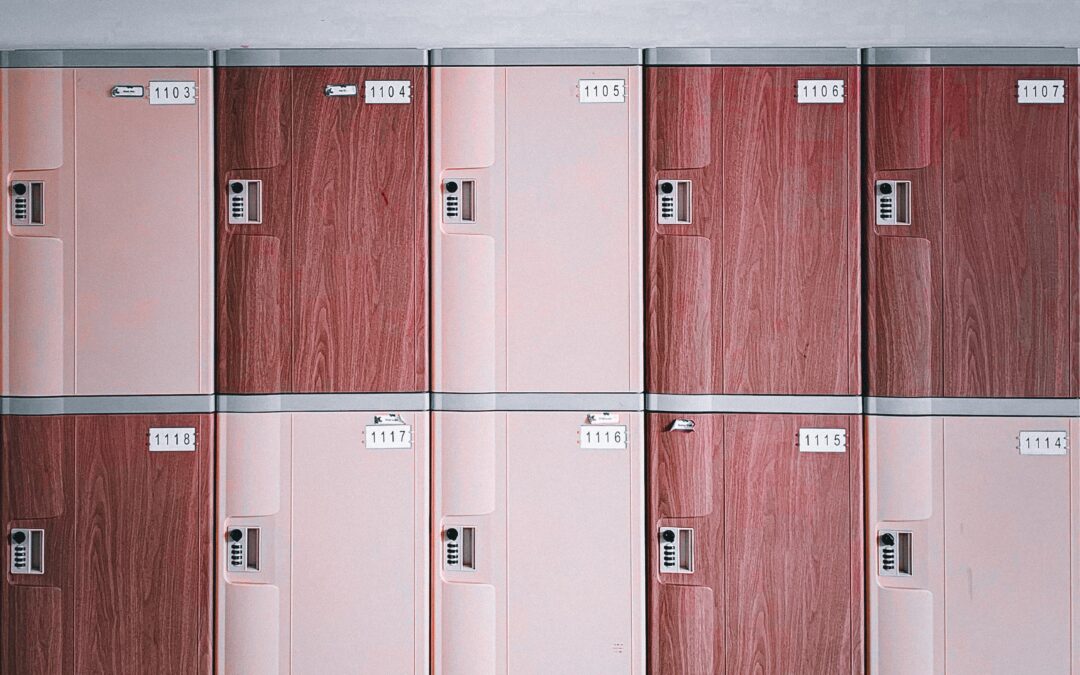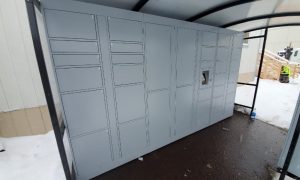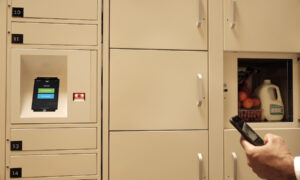Buy online, pick up in locker (BOPIL) is a new service that many businesses are looking into. BOPIL uses smart lockers to facilitate contactless transactions between customers and businesses. BOPIL is part of the same family of services as curbside pick up and buy online, pick up in store (BOPIS).
To be sure, curbside pick-up and BOPIL share some of the same pros and cons. Both options help retailers expand their transaction capacity. These two options also both promote social distancing. Instead of focusing on the similarities between the two services, this article will explore how the services differ primarily from the perspective of the customer. This article also explores these differences from the perspective of cost to the business.
Pros of Curbside Pick Up
Curbside pick-up is a service that grew out of the Covid-19 pandemic. The ease of implementation allowed nearly any business to easily establish contactless pick-up options for customers. While the global pandemic landscape has changed considerably since March of 2020, most customers expect options like curbside pick up, BOPIS, and BOPIL to continue into the future. Curbside pick-up has a few distinct advantages compared to BOPIL.
Customers Can Stay In Their Cars
Some customers prefer to stay in their cars. The prevalence of drive-thru fast-food restaurants is a testament to this consumer preference. Businesses can design curbside pick-up systems that allow customers to remain in their cars for the entire transaction.
Few Associated Infrastructure Costs
Curbside pick-up is simple to implement, especially for small businesses, because it doesn’t require any additional infrastructure. Curbside pick-up only requires a small curbside area and a system to organize orders. BOPIL obviously requires a smart locker system. The cost of this system can be difficult for some small businesses to justify.
Cons of Curbside Pick Up
While curbside pick-up has come a long way since the beginning of the pandemic, it is still an imperfect system.
Customers Hate Waiting in Lines
Anyone who regularly orders through curbside pick up has run into long lines. These lines can frustrate customers and discourage them from placing orders in the future.
Harder Returns for the Customer
Curbside pick up typically doesn’t offer an exclusive curbside return option. Instead, customers usually need to wait in line inside the store to return an item. Returning items this way puts more burden on the customer compared to BOPIL.
Employee Labor Costs
A major drawback of curbside pick up is that an employee must always be on duty. Customers expect an employee to greet them at the curbside when they arrive. Day after day, this employee labor compounds and becomes a substantial business cost.
Pros of BOPIL
BOPIL has numerous advantages compared to curbside pick up. In general, BOPIL is quicker and more streamlined for customers, more versatile in function, and more cost effective.
Quicker Pick-Up
Customers are more likely to think of BOPIL as being a quicker alternative to curbside pick up. Customers who choose curbside pick up can run into inconvenient lines when they are in a rush to pick up their order. Lockers, on the other hand, don’t have lines. Multiple people can access the locker system at the same time, cutting down on pick up time.
Customers Can Access Smart Lockers 24/7
Curbside pick up is only available during business hours. One major advantage of BOPIL is that customers can access outdoor lockers 24/7. For potential customers who work during retail hours, 24/7 pick up can make or break a transaction. These customers might not be able to get to the store during regular open hours for curbside pick up. With a 24/7 pick up option, BOPIL allows customers to pick up their orders whenever they want.
Easier Returns for the Customer
Instead of waiting in customer service lines for a simple return, customers can return items quickly by placing them in a locker. In fact, the ease of returning items via lockers is one of the reasons businesses originally invented smart lockers!
Additional Labor Costs Are Minimal
Like with curbside pick up, employees must gather the purchased items and sort them into individual orders. Curbside pick up, as described above, requires an employee available at all times to fulfill orders when customers arrive. BOPIL, in contrast, simply requires the employee to place the order in a locker. This frees up employee’s valuable time for more important tasks.
Lockers Are More Versatile
Curbside pick up only works for retail stores. However, there are additional applications for smart lockers. Universities, for example, use lockers for the delivery of student packages. Carriers can place the packages in lockers and students can pick up the packages at their convenience. Libraries, apartment buildings, and workplaces can also benefit from smart lockers.
Cons of BOPIL
While BOPIL is generally a more versatile and cost effective system than curbside pick up, there are a few minor drawbacks.
More Difficult for Customers to Ask Employees Questions
The absence of customer interaction with employees is a pro when it comes to social distancing and employee labor, but having no interaction can make it more difficult for customers to ask questions. Unlike curbside pick up, where customers can ask questions while they pick up their order, BOPIL customers need to go out of their way to find an employee.
Interacting With Lockers Can Be Challenging For Some
While many people are technologically savvy, millions of people still struggle with new technology. These folks especially struggle when it comes to learning new systems and interfaces. While smart storage lockers are intuitive and easy to use for most people, learning a new technology could deter some potential customers.
Cost of the Smart Locker
While BOPIL services reduce employee labor costs compared to curbside pick up, smart lockers do cost money. Smiota smart lockers are customizable and modular, meaning that Smiota can design a smart locker system to meet your specific size and functional requirements. Due to the up-front cost, smart lockers make more sense for businesses who plan to do a decent amount of transactions via BOPIL.
What’s the Verdict?
Of course, that’s for you to decide! Hopefully by weighing the factors listed above, you have a more clear picture of the pros and cons of both BOPIL and curbside pick up. Whatever you choose, it will be important to offer customers some sort of alternative pick up service for the foreseeable future.




